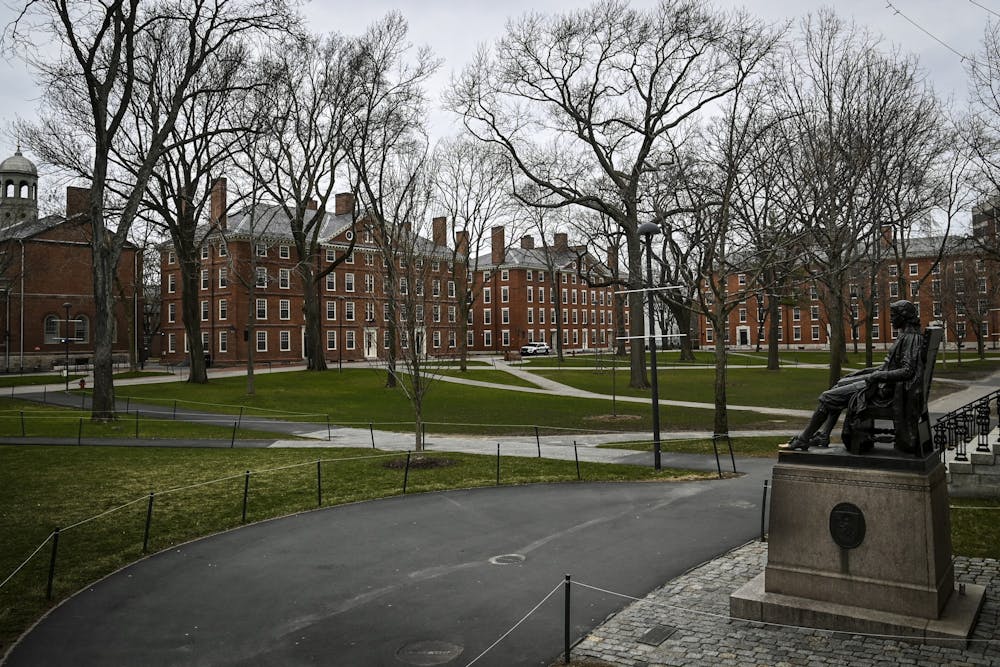
Harvard Yard on Harvard University's campus in Cambridge, Mass.
Credit: Kylie CooperLast Thursday, Harvard University’s Peabody Museum of Archeology and Ethnology pledged to return hundreds of hair samples currently in its collection that was taken from Native Americans.
The samples have been held by the Peabody Museum for nearly 80 years and were taken from approximately 700 children who attended United States Indian Boarding Schools from 1930 to 1933. In addition to its pledge to return the samples, the museum publicly apologized to "Indigenous families and tribal nations” for its “complicity in the objectification of Native peoples.”
The Peabody Museum said it is currently in contact with the respective Indigenous nations to begin facilitating repatriations, The Crimson reported.
According to the Peabody Museum’s website, since July it has repatriated “over 3,000 individuals' [remains], 8,000 funerary objects, and 100 objects of cultural patrimony and sacred objects.”
The Woodbury Collection, of which the samples were a part, contained 1,500 hair samples. These were collected by anthropologist George Edward Woodbury who got them from Asia, Central America, North America, Oceania, and South America.
The Peabody Museum wrote that it is crucial to acknowledge “the ties between early anthropological practices and colonialism, imperialism, and scientific racism.”
This is not the first time that the Peabody Museum has apologized for an incident regarding the possession of human remains. In January 2021, the Peabody Museum issued a similar public apology for its “failure as an institution to face the ethical and moral issues that undergirded the practices that brought them to our Museum.”
The Penn Museum has faced similar controversy in the past. Last April, it was revealed that the Penn Museum held human remains from the 1985 MOVE bombing for over 36 years. It issued a public apology at the end of the month following significant community backlash.
In August, the Penn Museum announced plans to rebury the cranial remains of at least 13 Black Philadelphians who were enslaved, which were part of a collection owned by Samuel George Morton.
The Daily Pennsylvanian is an independent, student-run newspaper. Please consider making a donation to support the coverage that shapes the University. Your generosity ensures a future of strong journalism at Penn.
Donate







